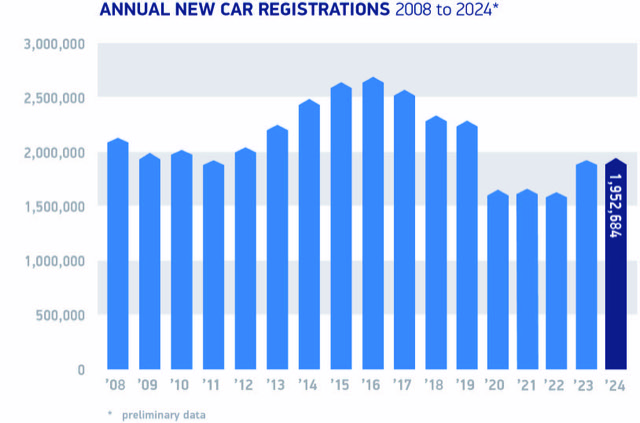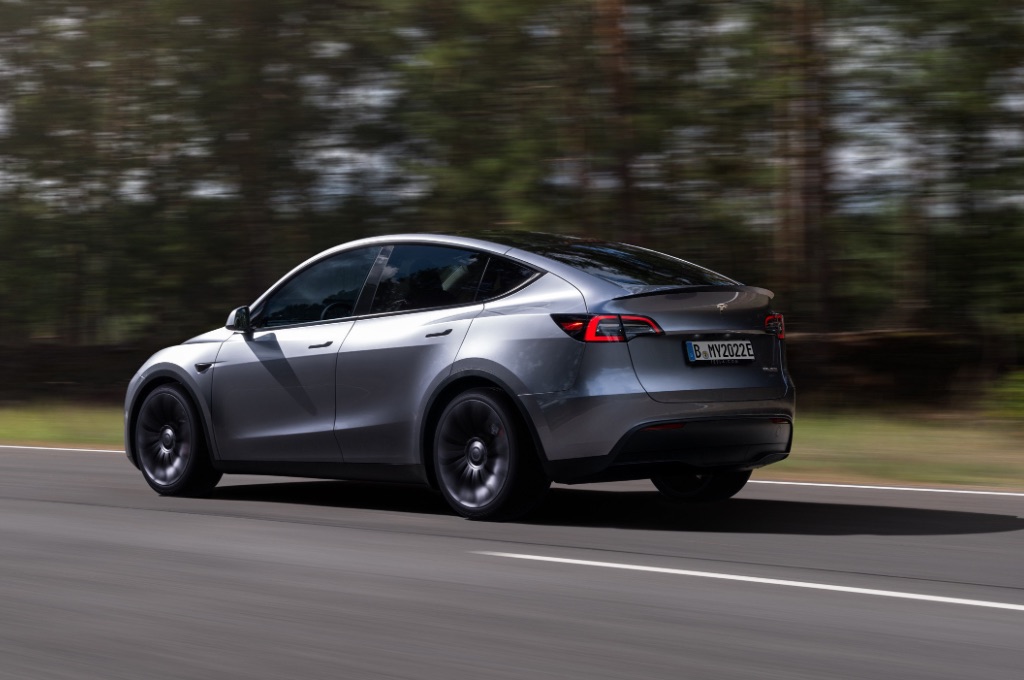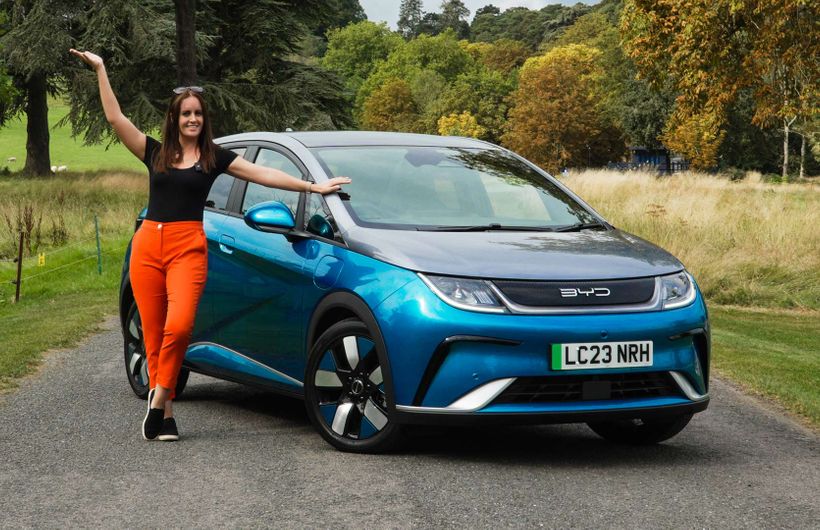The UK new car market recorded its second successive year of growth, hitting a new high in 2024 and selling record numbers of electric cars, according to figures from SMMT (Society of Motor Manufacturers and Traders). However, despite 19.6 per cent of all new cars sold being electric, registration numbers failed to meet the 22 per cent target set by the government in its Zero Emissions Vehicles (ZEV) Mandate.
Car makers that don’t meet these targets face fines of up to £15,000 per non-compliant vehicle, but a number of mechanisms are in place to help them offset penalties including a credit-trading system or by offsetting against their overall CO2 emissions.
Over the full year, growth was in EV sales delivered entirely by fleets with registrations by private buyers falling by -8.7% to around 746,000 units – less than in 2020 when social distancing restrictions during the pandemic shut down the market for three months.
But while the apparent drop in demand from private buyers for electric cars may seem concerning, the government pointed out that these official figures do not consider private lease contracts, ex-demo and salary sacrifice cars which will be registered as business purchases even though they are used by private motorists.
The first year of mandated targets finished with another strong December performance, with around 44,000 new battery electric vehicle (BEV) registrations accounting for 31.0% of the market – the highest since December 2022’s record 32.9%. As a result, BEVs made up 19.6% of the market (382,000 units) in 2024, up by more than a fifth (around 67,000 units) from last year, but short of the 22% demanded by the mandate.

However, the government says that it expects the targets to be met, saying: “as part of the flexibilities in the ZEV mandate, manufacturers also have a CO2 target as well as a target on the number of vehicles sold…..Preliminary DfT/DVLA data suggests that when this is taken into account, the car market as a whole will have achieved the 22% ZEV Mandate target…. We are confident the whole market has complied with the 22% target and that no car manufacturer will need to pay fines.”
The SMMT says the industry has “pulled every lever to try and achieve this target”, with manufacturer discounting totalling more than £4.5 billion in 2024, an amount it says is not sustainable in the long term. Although it declined to give a break down of how this figure had been reached at a briefing on the 2024 results.
However, the best-selling cars in December 2024 - which saw EV sales hit 31% - were the Tesla Model Y with 5,165 registrations and the Model 3 with 3,477. Tesla does not have to meet targets as it has a 100% electric range. The Audi Q4 e-tron took 9th place in December and narrowly beat the Model 3 in overall 2024 sales.

Petrol remained the most popular powertrain among these buyers, commanding 61.0% of demand, with hybrid electric vehicles (HEVs) in second place (16.0%). There are now a record 132 zero emission models on the UK market, up 38% since 2023 and accounting for a third of all those available.
Conversely, around 64,000 more BEVs were registered by businesses and fleets than a year ago, representing a quarter (25.4%) of those segments’ registrations and demonstrating the effectiveness of the compelling tax incentives afforded non-private buyers.
Across the total market, pure petrol and diesel car registrations fell by -4.4% and -13.6% respectively as more buyers swapped either to BEVs, or to lower emission hybrid electric vehicles (up 9.6%) and plug-in hybrids (up 18.3%)
Meeting the mandate thresholds in 2025 will be even more intense as the target is now 28% – requiring an EV market uplift of just under 50%.
Tesla Model Y | 32,862 |
Audi Q4 e-tron | 17,621 |
Tesla Model 3 | 17,425 |
MG4 | 15,651 |
BMW i4 | 12,953 |
Mercedes EQA | 11,617 |
Skoda Enyaq | 11,516 |
Hyundai KONA | 10,858 |
Volvo EX30 | 9,931 |
Volkswagen ID.4 | 8,927 |
 Salary sacrifice and private lease cars will count as a business sale, even if used by private motorists
Salary sacrifice and private lease cars will count as a business sale, even if used by private motorists 










